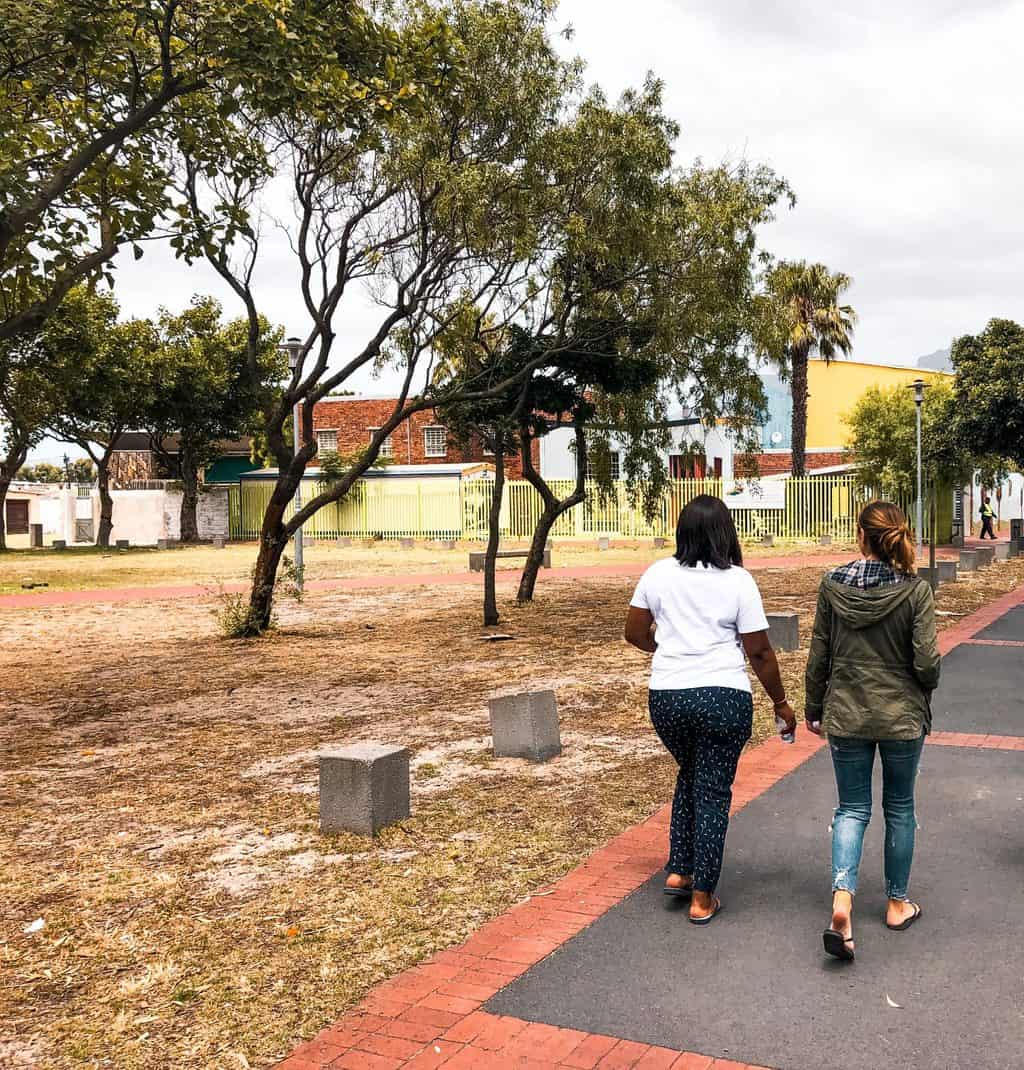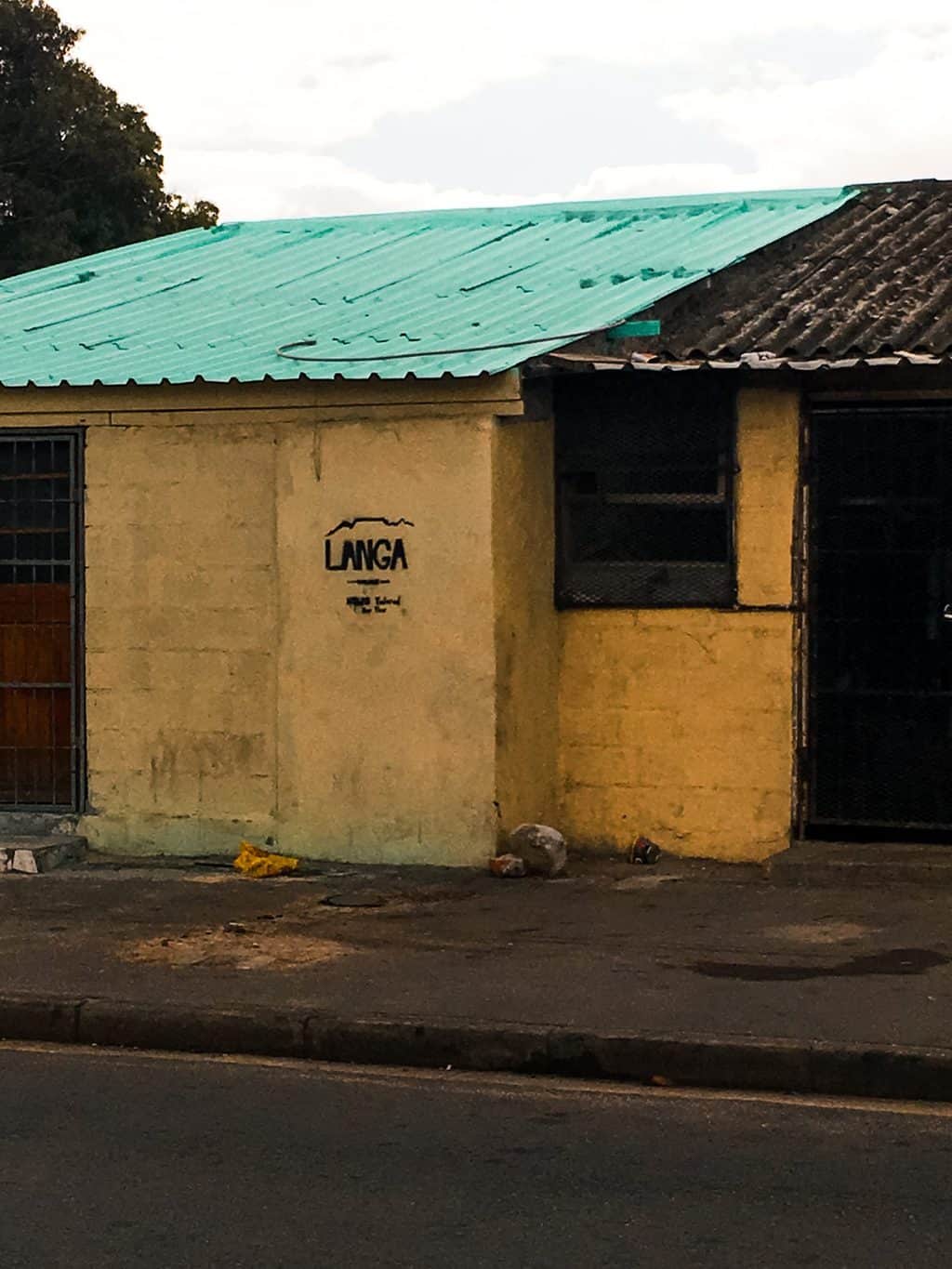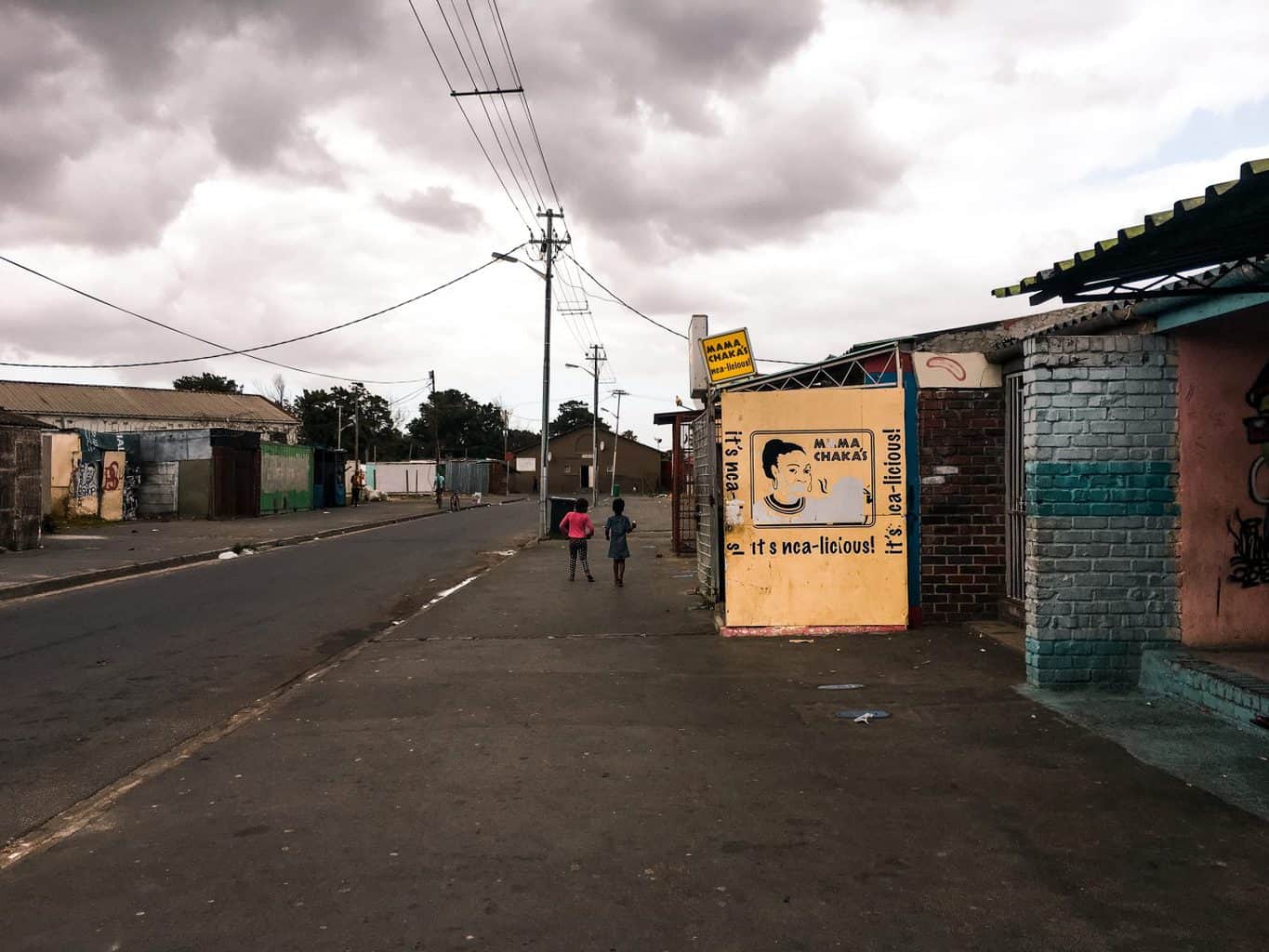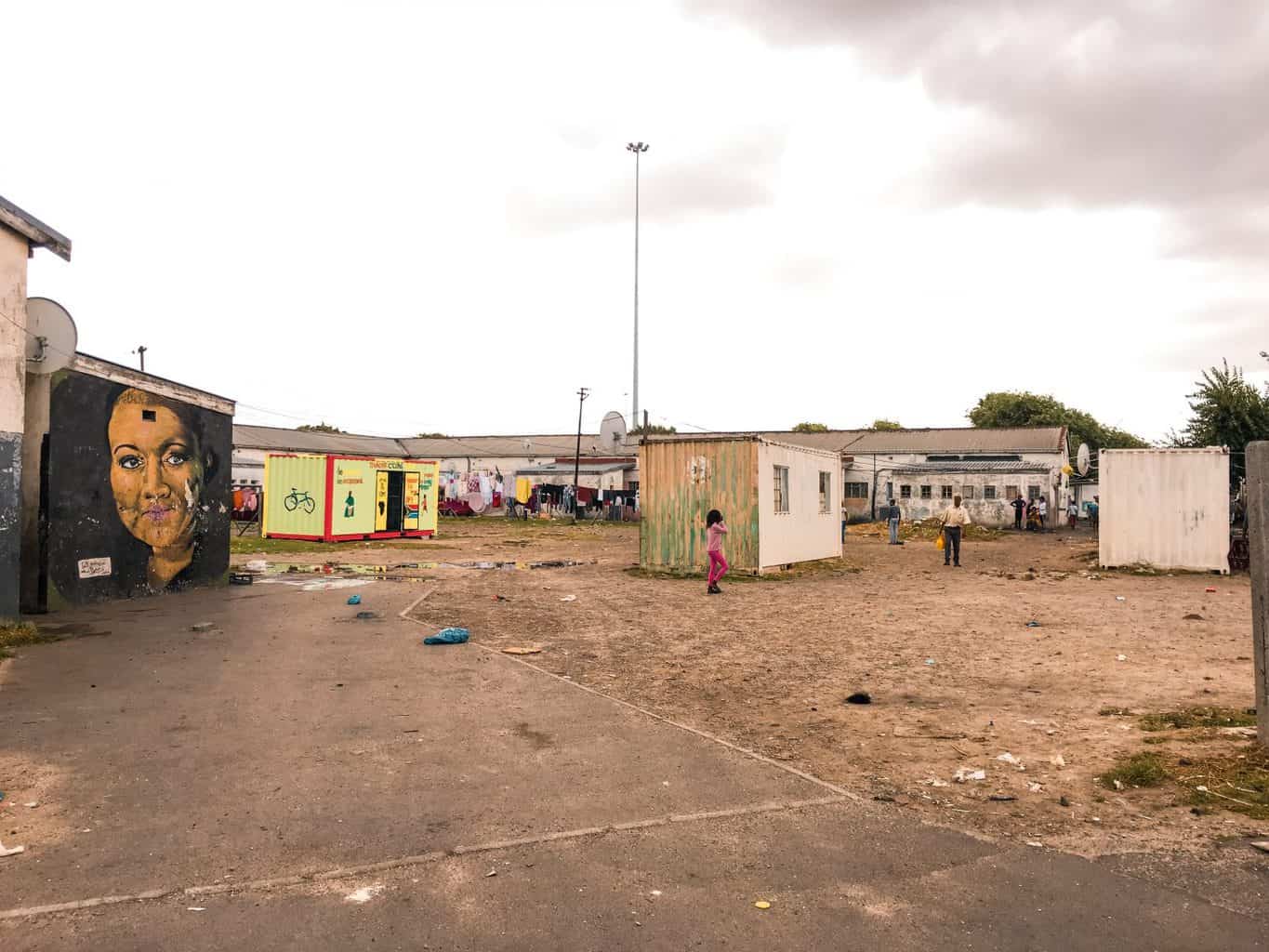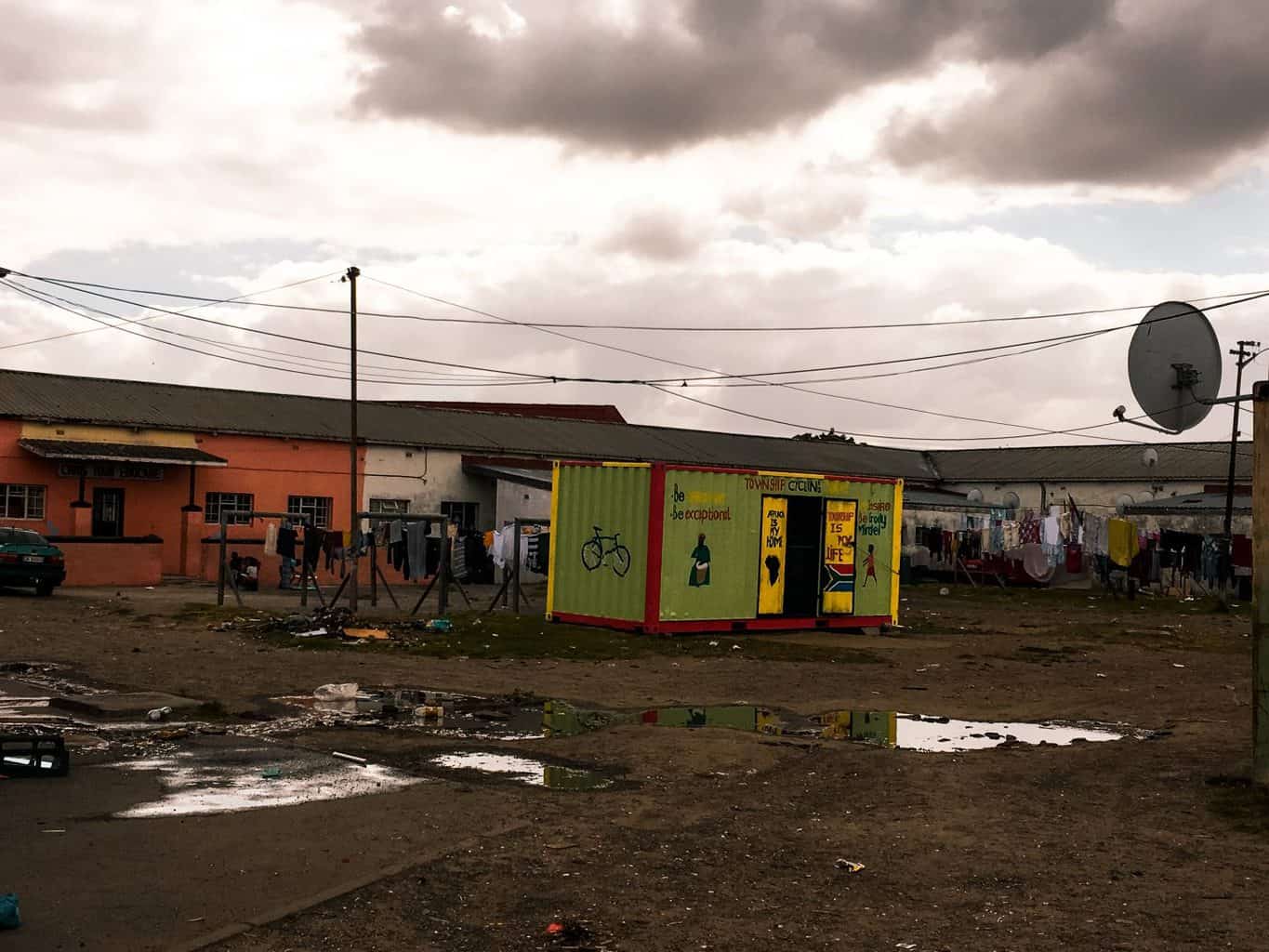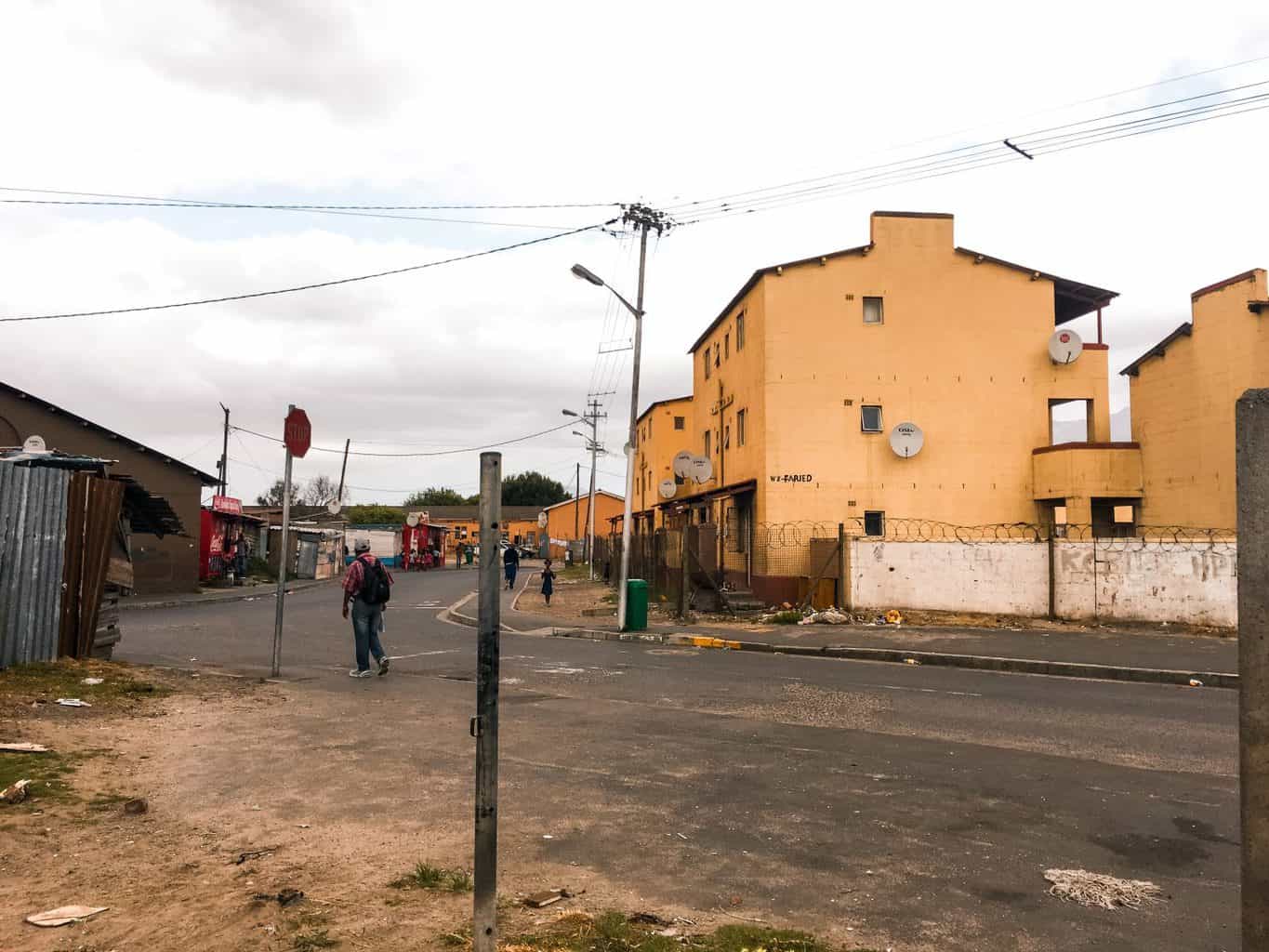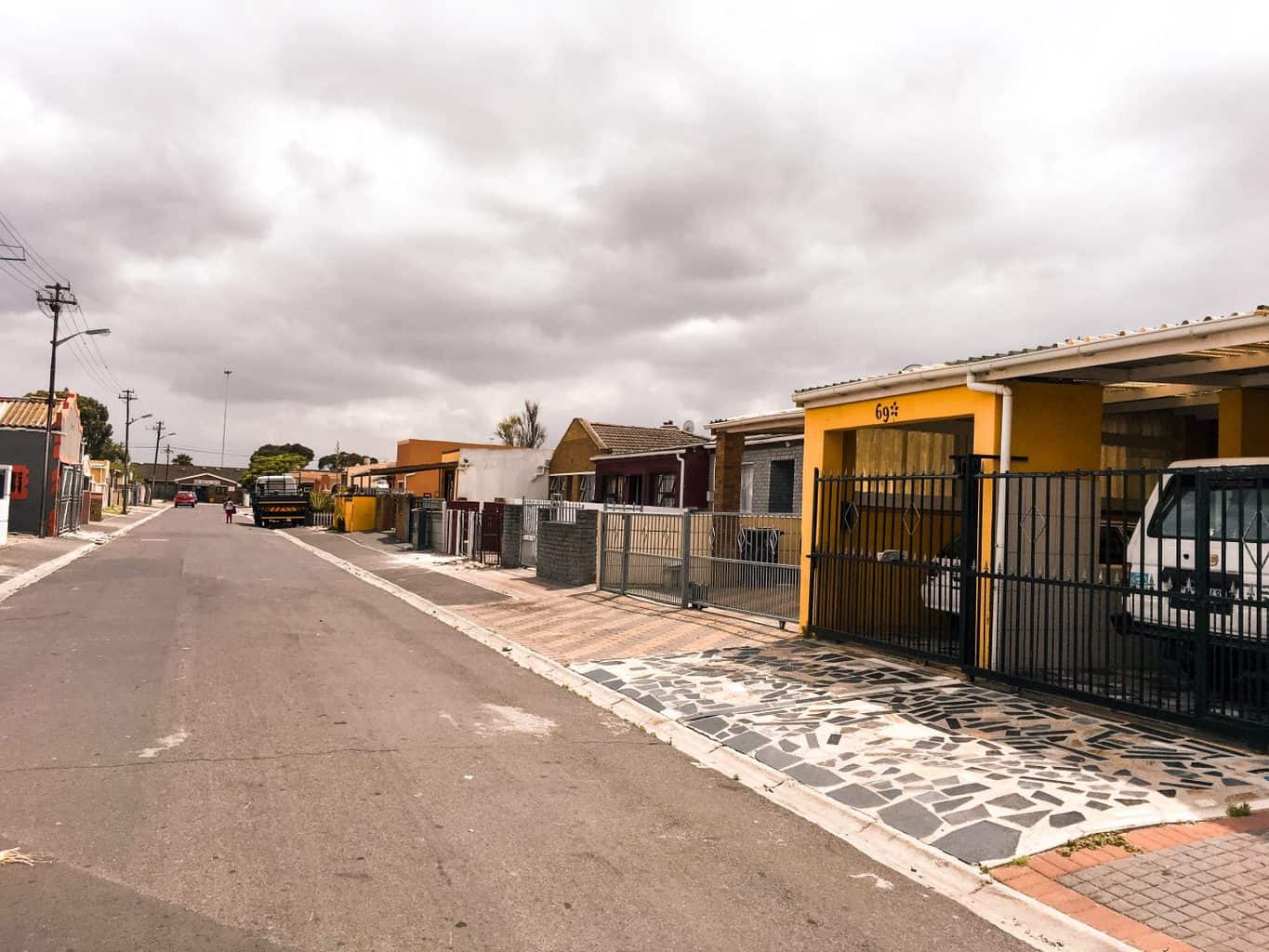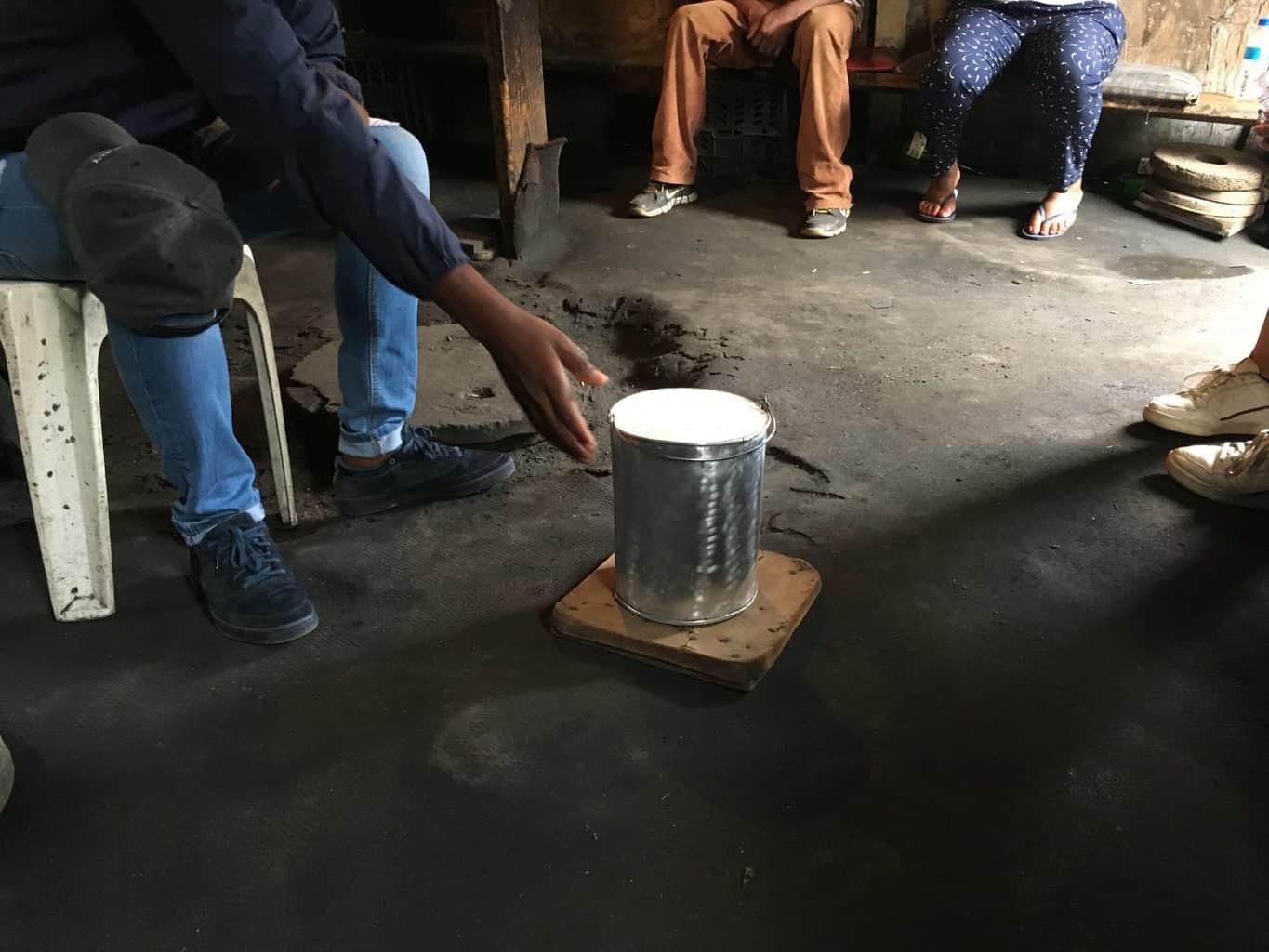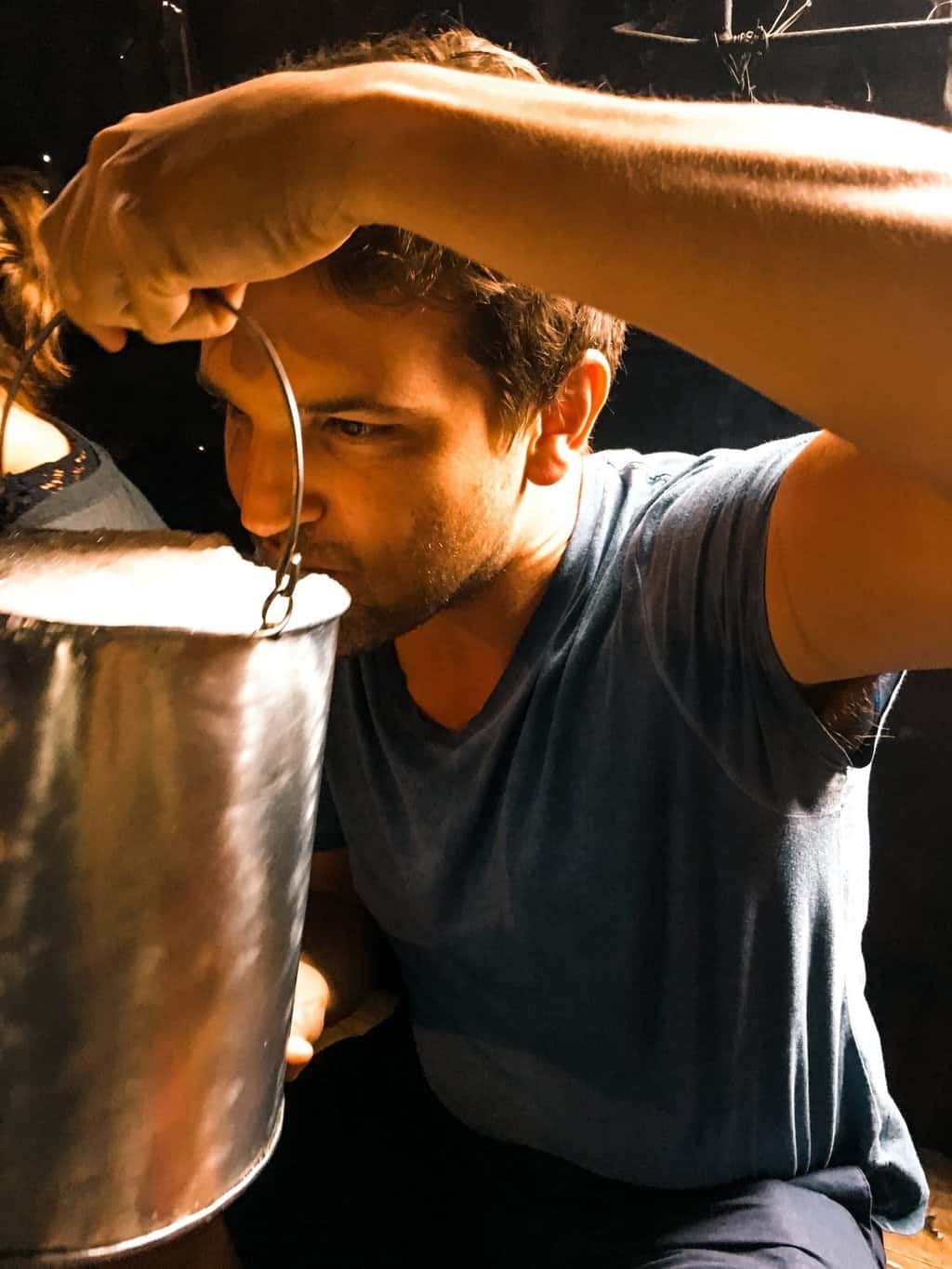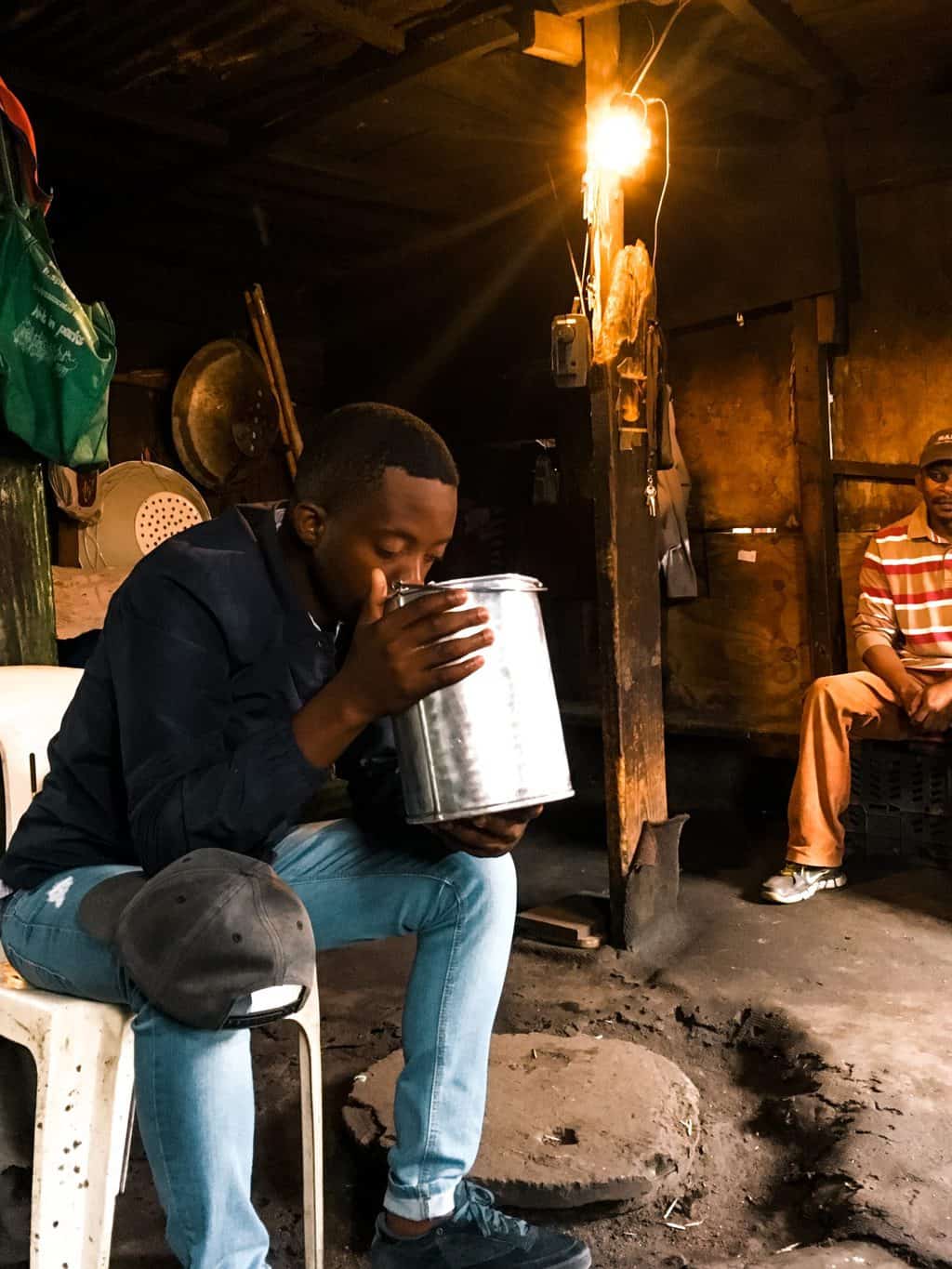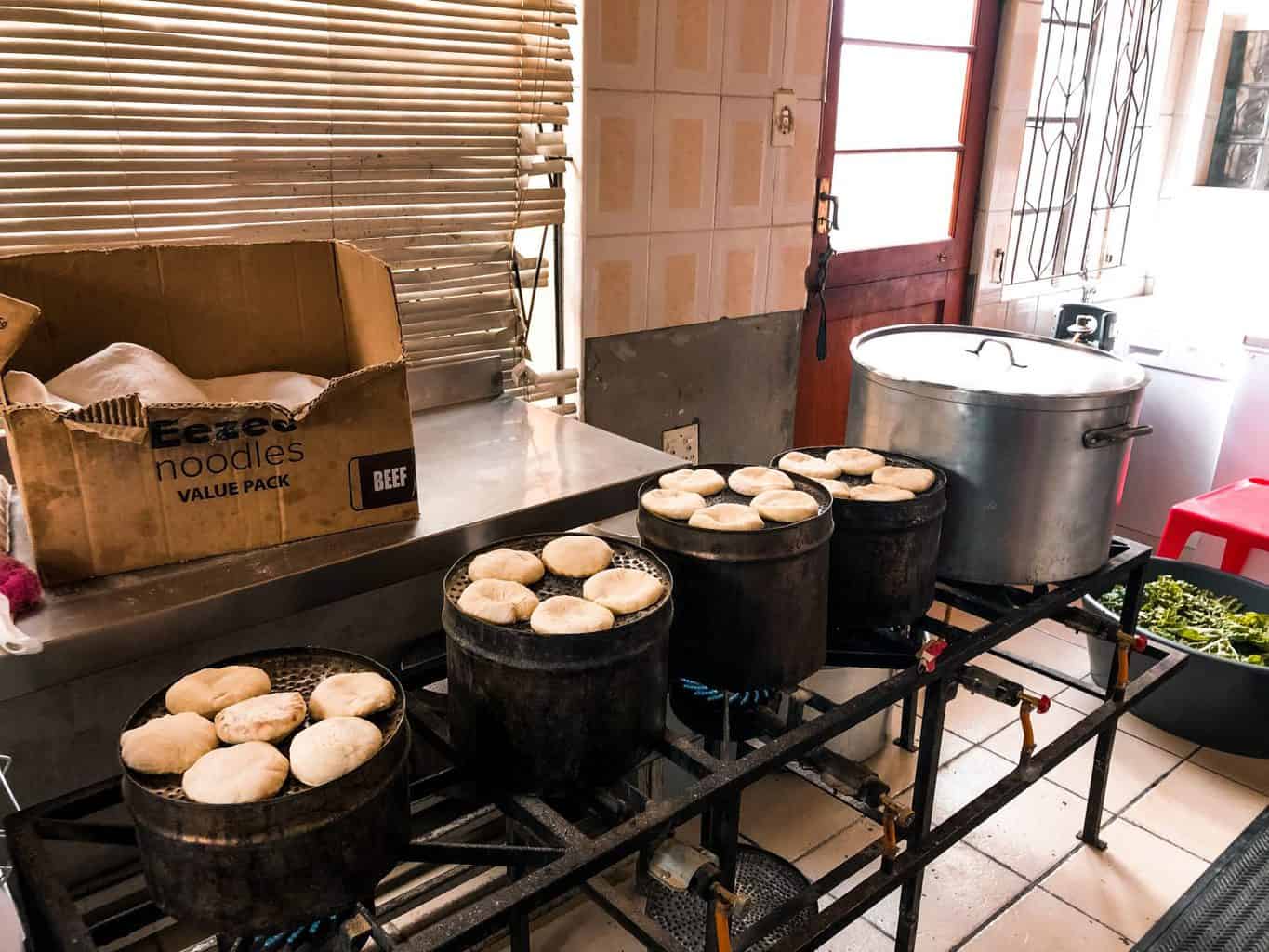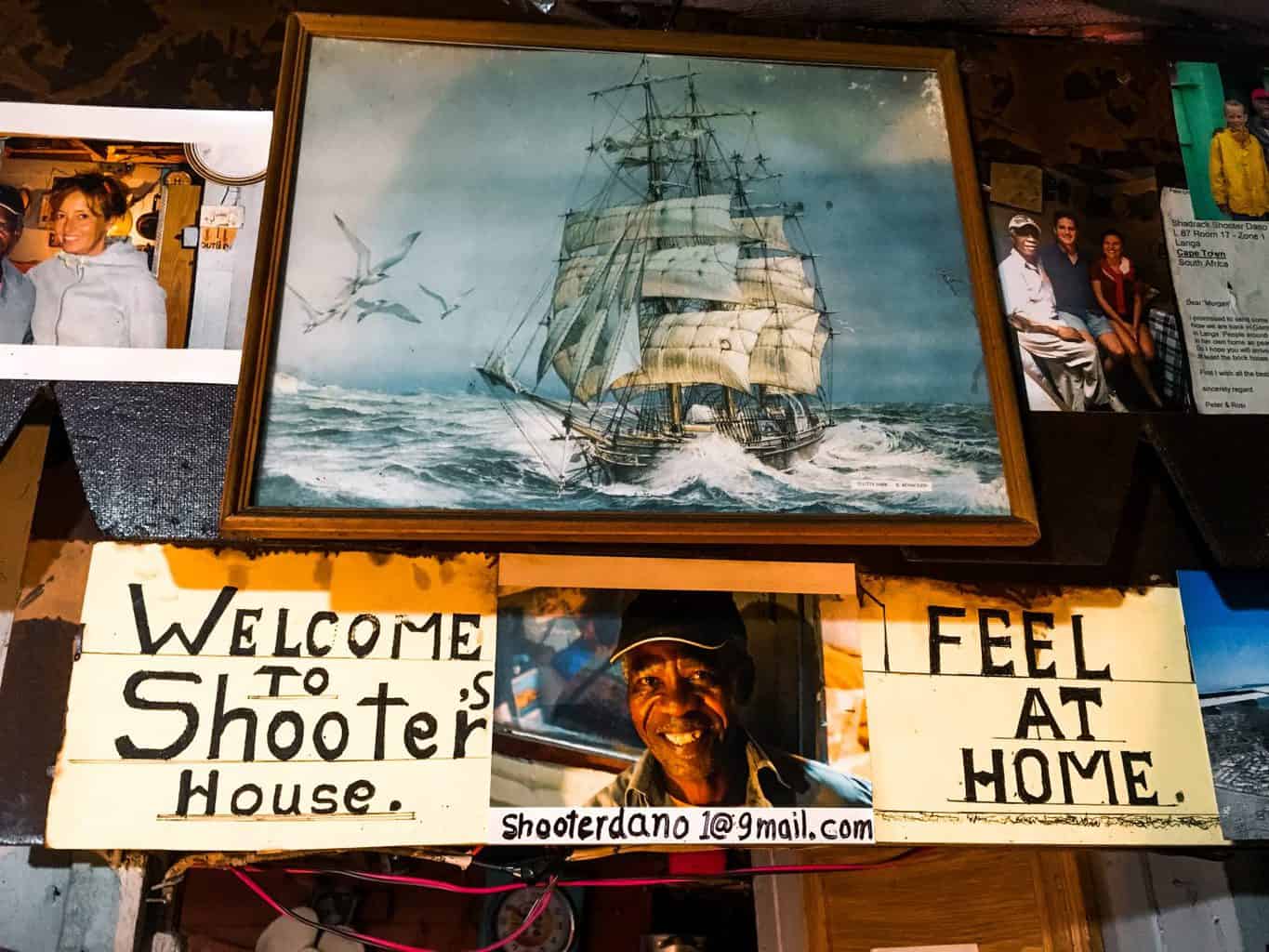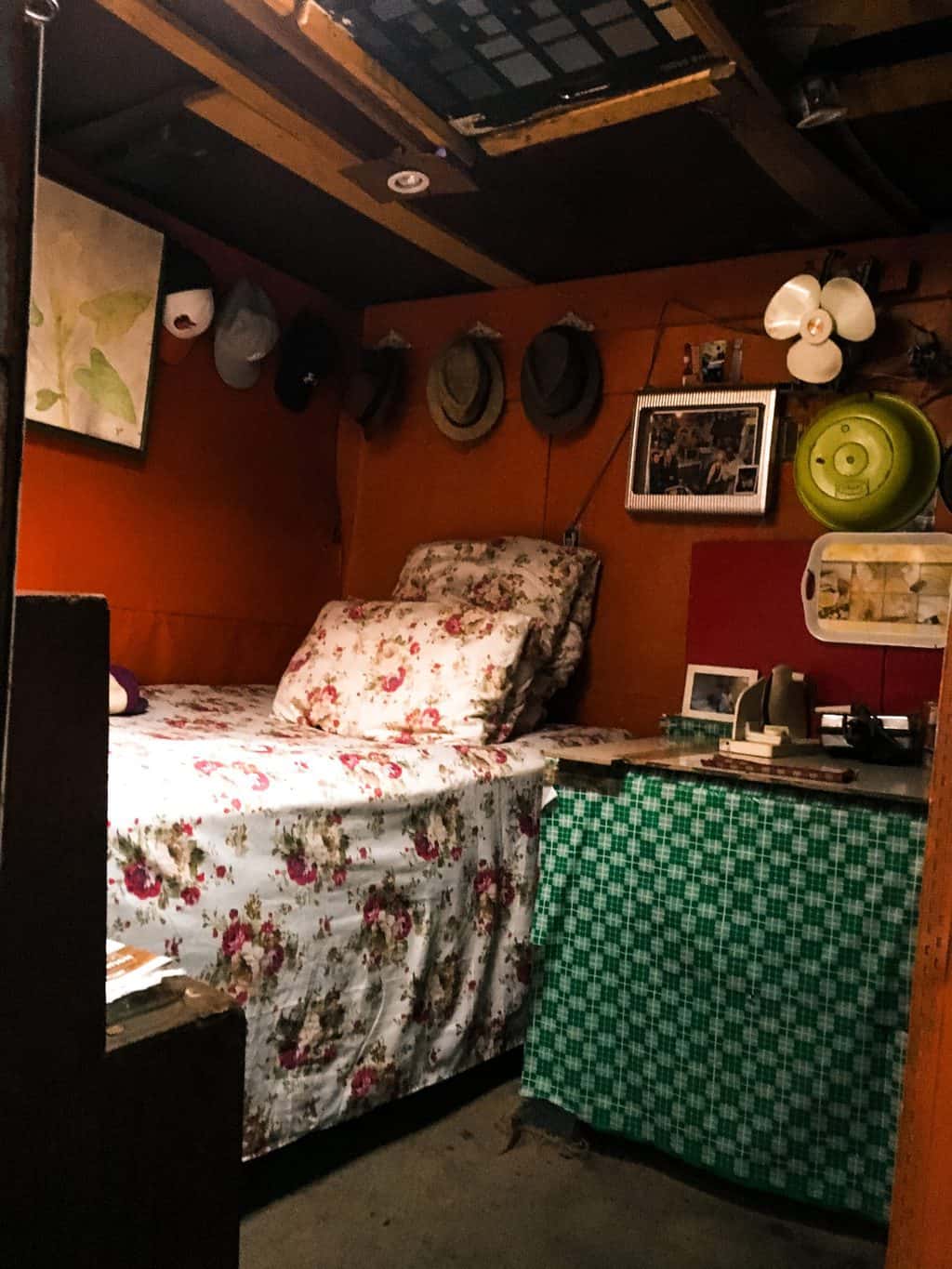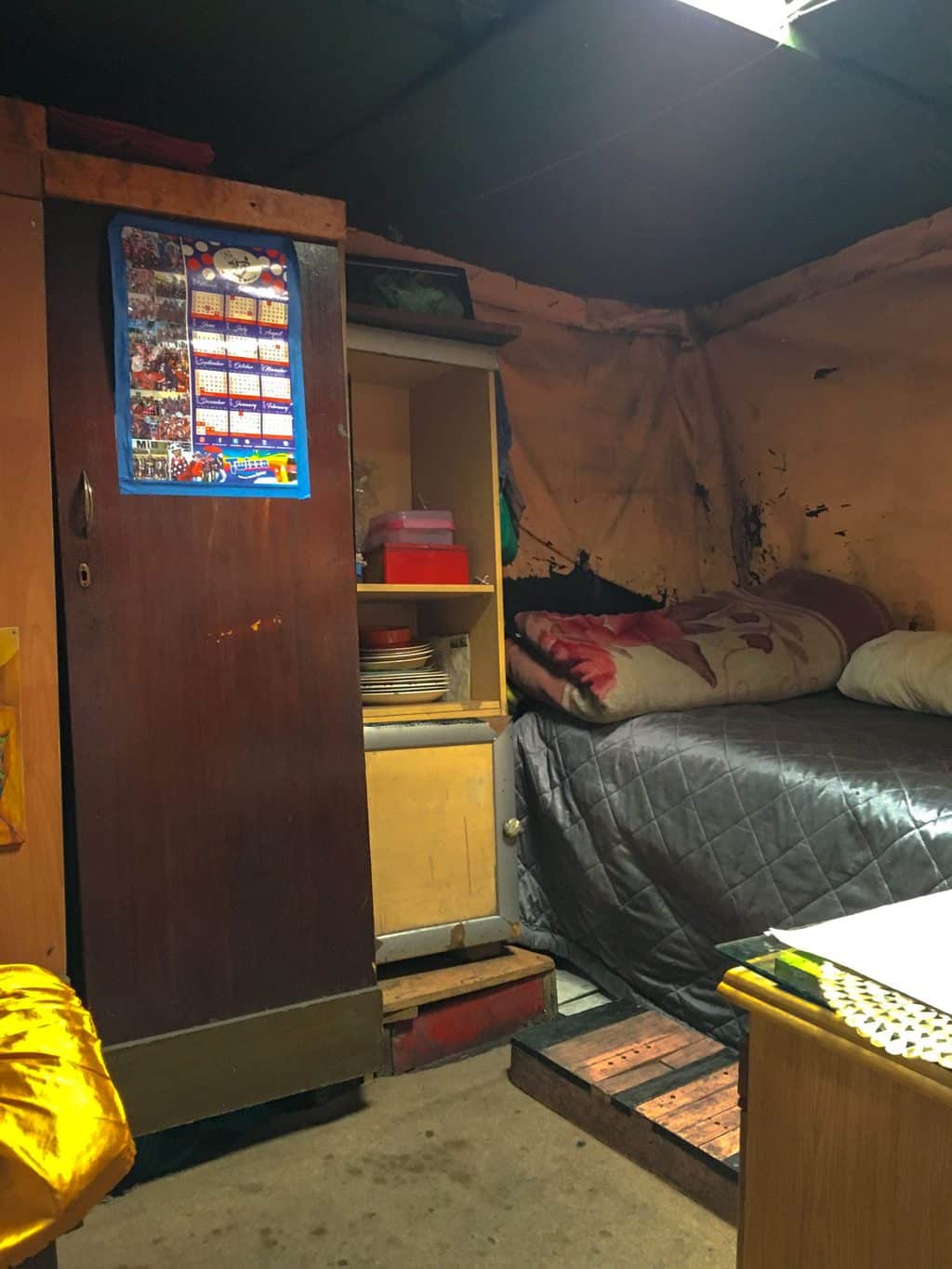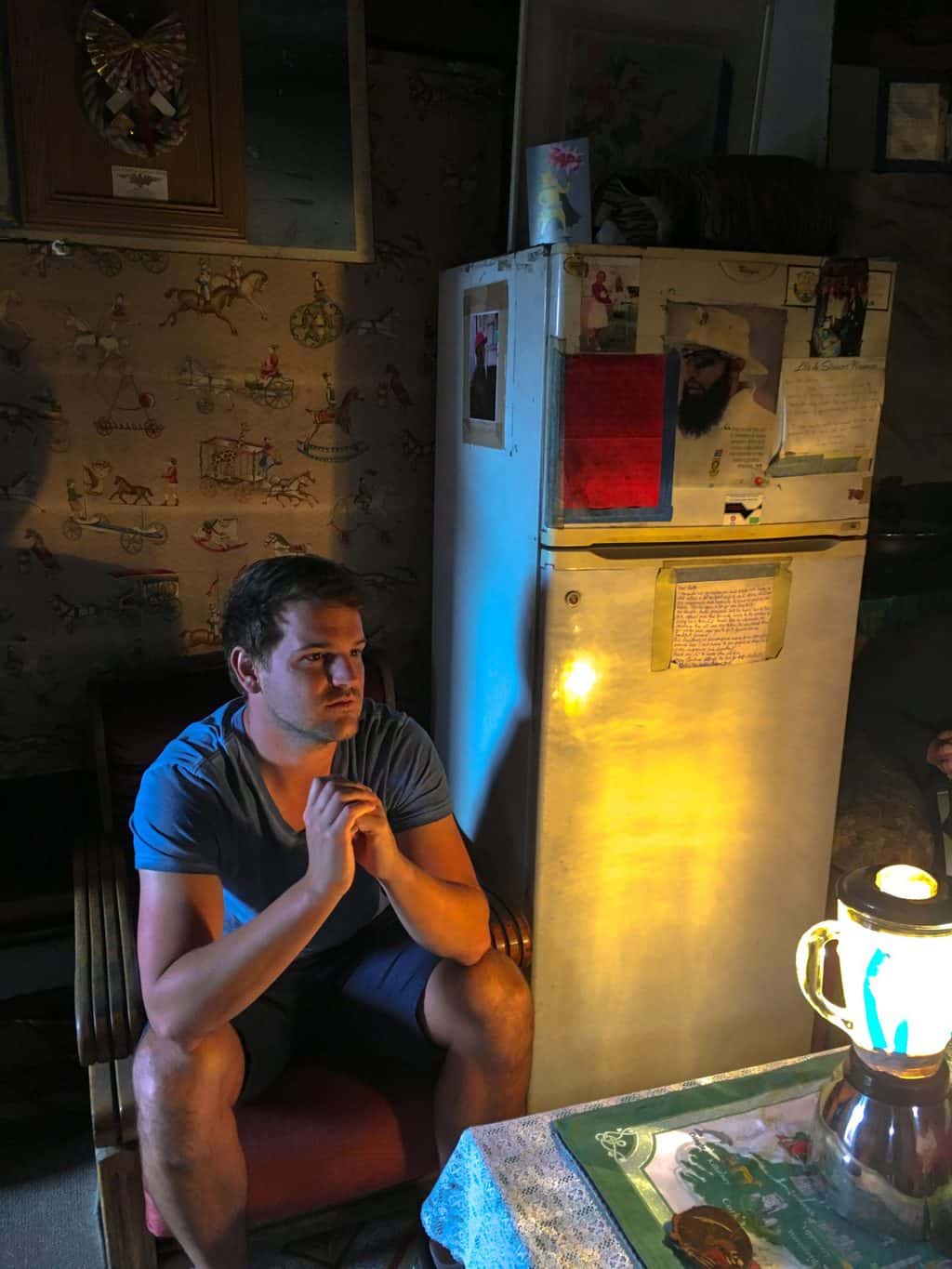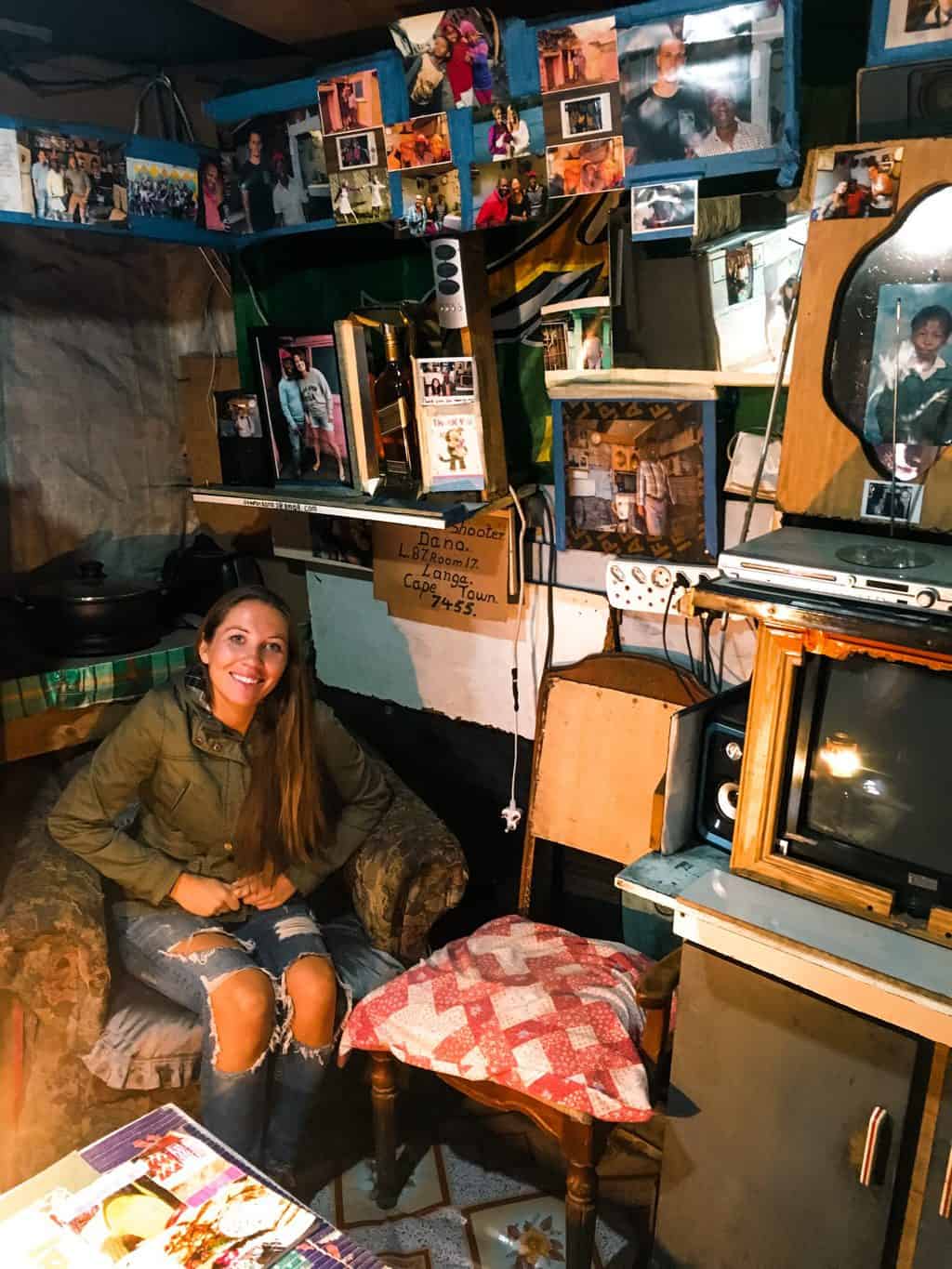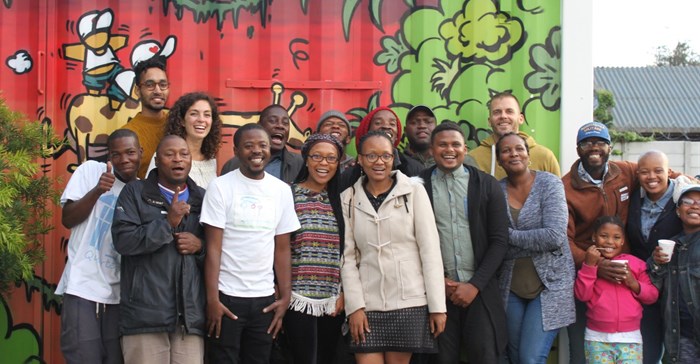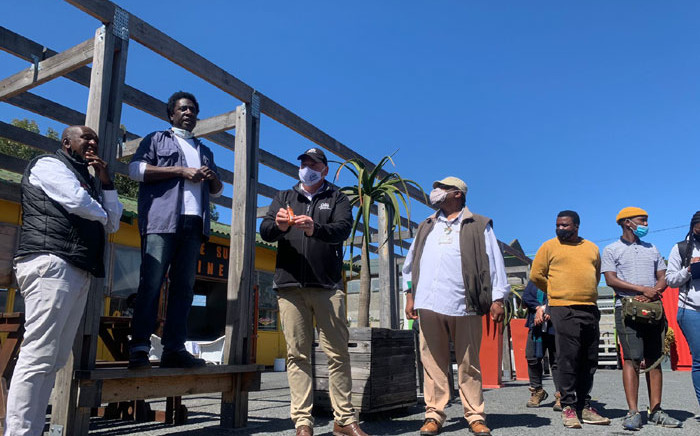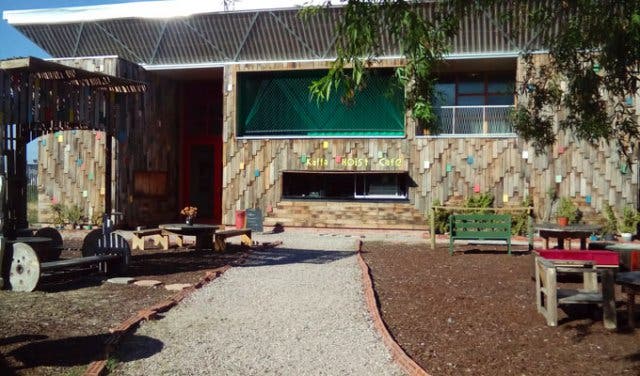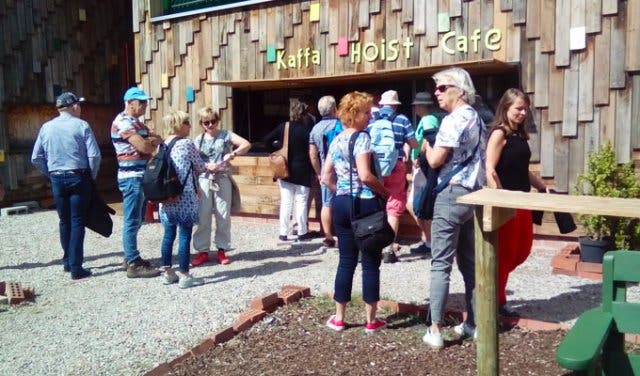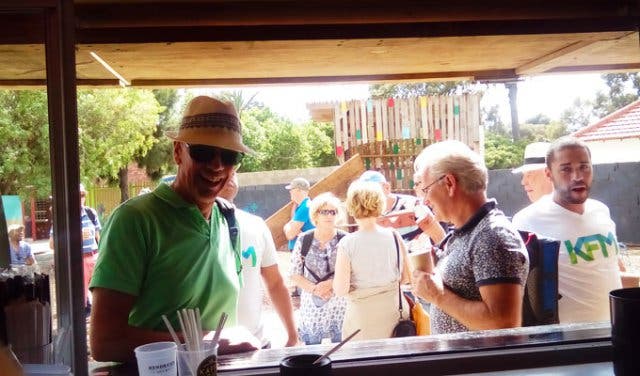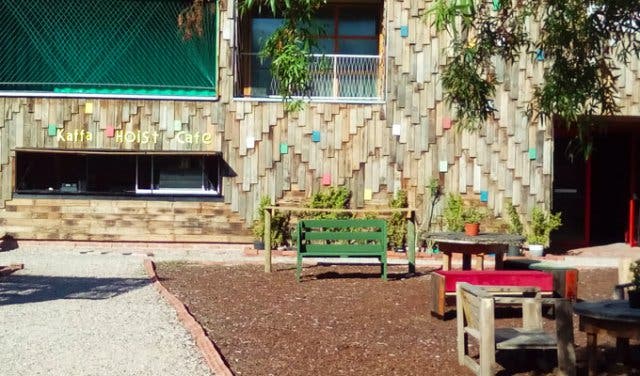19 Sep 2018| South Africa
Should you take a Township Tour in Cape Town?
Our Langa Township Tour in Cape Town explored a side of the city few visitors see. But is slum tourism an indulgence for tourists or does it serve a greater purpose?
At only 1.5 kilometres square, Langa is one of the smallest townships in the city. Ten years ago it was home to 50,000 people, but like many townships, it has grown rapidly as job opportunities in the city draw workers and families from the surrounding countryside. There are now about 80,000 people in Langa and the township is struggling to cope.
In recent years, entrepreneurial souls – knowing wealthy westerners are engaged by their poverty – have introduced tours to townships such as Langa. While there a many great things to do in Cape Town, we were drawn to exploring this other side to the city, but were unsure if it was the right thing to do.
Should we be inspecting other people’s poverty and misfortune? Are we helping this township or making their situation worse?
Booking your trip via the links on this page (or on our book page) will earn us a small commission, at no extra cost to you. Thanks for your support – Paul & Mark.

END OF APARTHEID AND NEW RIGHTS FOR BLACK CITIZENS
We park outside a shop on the edge of Langa, just off junction 12 of the N2. Being the only white people, our guide spots us quickly and rushes up to welcome us warmly. His name is Nathi and he is keen to begin this Langa Township Tour; to show us his town, his friends and his family.
Walking down a narrow dusty alleyway, we enter a small shack and are introduced to Shadrack, or ‘Shooter’ to his friends. But he also goes by the name MacGyver, thanks to his ingenuity in building every inch of his wooden and sheet metal home which we are sitting in now. The shack is small but homely and pristinely clean. There are pictures all over the walls, not only of his family but also the people who have visited him over the years. An empty bottle of Johnny Walker Gold Label stands on a shelf. His face, of an indeterminate age, is lit up by a broken blender he has converted into a lamp, as he regales us with the story of his life and his township.

Shooter was a police officer during apartheid, a system of institutionalised racial segregation that existed in South Africa from 1948 to 1994. This institutionalised racial segregation legalised state oppression of black and coloured peoples by a white minority. As a black officer, he was not permitted to arrest white criminals, and was subordinate to white officers, even of lower rank. He was not only distrusted by white colleagues, but also by black citizens, for whom the police were the physical embodiment of an oppressive government and its unjust laws. He left the force, in 1993 just as the apartheid era laws were coming to an end.
We ask him what has changed most in the township in his lifetime. He doesn’t describe houses going up, or infrastructure being built. He doesn’t talk about development or integration. Instead, he basks in his rights. “Twenty-five years ago, I got my legal rights. The right to go where I want, when I want. The right not to be stopped for no reason. The right not to be arrested for forgetting ID papers. I became a free man. This is what has changed the most, and it is everything”.
He explains, that as democracy came to black citizens in South Africa, the government ceased to be his enemy. It got out of the way of him building his own future. And the police force became the police service. It went from using force to subjugate the townships to providing a service to support their citizens in their quest for a better life.

THE WORKERS OF CAPE TOWN BUILD THEIR LIVES
And building better lives is exactly what the people of Langa are doing. Every morning they get up and head into the city to be restaurant servers, office and factory workers, drivers and builders. They head into the suburbs to be gardeners, cooks and cleaners. Cape Town is built and run on the back of the people of Langa and townships like it.
Yet many also earn their living in the township itself. Two women, with the street as their office, are brewing beer in large plastic barrels in a cramped, smoky alley between self-built tin sheds. Their brew is bubbling away. It is only 1.5 to 2% alcohol, but if you drink enough, Nathi explains with a grin, it works just the same. Round the corner, a small factory with two kilns produces hand-painted ceramics that are shipped to European and American Universities.


Three women, clad completely in black, stand in a pile of broken charred wood and building offcuts. Their faces, illuminated by light brown fire resistant paint, loom out of the darkness. They are selling firewood and sheep’s heads. Sheep’s heads are a delicacy here and served to the older generation as a sign of respect. Cheeks, eye sockets, and tongue are the choicest parts. But sheep are few and demand is high, so they ship the heads in from New Zealand.
Next on our Langa Township Tour, we cross a car washing business. They can clean a couple of hundred cars in a day, and in three days can make more than workers heading into town. It’s a profitable business. Nathi says he has tried to explain to them the value of saving, of putting money aside each week, for a rainy day. But his words of advice do not always find a receptive ear.
He is saving though. He has a girlfriend and in order to get married, he must present a dowry to his future wife’s family. Eight to twelve cows is customary. But just like sheep, there are few cows in the city, so money has taken its place. A cow is 5,000 Rand, so marriage costs about 50,000 Rand (US $3,500). A significant outlay on a low daily wage.
But some have made a success of their freedoms, worked hard and saved. Nathi takes us up to the ‘Beverley Hills’ of Langa. Locals that have made it and want to remain in Langa’s tight community of friends and family live here. Houses made of concrete, with running water and electricity. This is where locals dreams have come true.

EXTREME POVERTY & GOVERNMENT HELP
But for everyone that lives in Beverley Hills there are hundreds living in poverty. We round another bend on our Langa Township Tour and are faced with 6 shipping containers. Sunk into the dirt in a small plot of unclaimed land. Each shipping container houses two families, often up to 12 people. Conditions are cramped and dark. There is barely room for each person to sleep. In winter they are cold and in summer baking. The stuffy air often forces people out of their homes and onto the street.
A woman is outside, perched on a low small stool, washing clothes in a bucket. Another is making her way to the toilet block a couple of hundred metres away, where 100 people share 5 toilets. But while these shipping containers are incredibly basic they are still home. Inside they are spotlessly clean. The ubiquitous satellite dish, bolted onto the shipping container, provides entertainment for the family and the outside is decorated with cool modern graffiti.

Shooter’s shack is also on unclaimed land, down a dark narrow alleyway, surrounded by more than a hundred other tightly packed buildings of wood and scrap metal. With three tiny rooms, his is the largest in the area. But he too has no running water and has to share his neighbour’s electricity.
Shooter, and many others were forced to move to their temporary self-built homes when the government decided to upgrade their government accommodation. But that temporary move was in 2007. Eleven years later Shooter, and many like him, are still waiting to return.
I ask him how much longer he will have to wait. He shrugs. I ask him if he finds it frustrating. “Yes, of course”, he replies, “but Rome was not built in a day. I have my rights, I am a free man. I can be patient and in the meantime I will build my own life.”
But as a tourist on a Langa Township Tour, it’s not the intangible improvement in rights that strikes you. It is the destitute poverty and squalor that lingers in parts of the township. There is obvious pride in Langa, yet hundreds live in temporary shacks and shipping containers with no running water and few facilities. It feels less like the government has got out of the way to allow people to build their lives, and more like it has abandoned them to their own devices. Exploring parts of Langa, it appears Rome is not getting built at all.

SLUM TOURISM & POVERTY PORN
Wandering the streets on our Langa Township Tour with Nathi, there is one awkward moment. A drunken man walks up to us, slurring words in his local Xhosa language. It’s unclear what he is saying, but it looks like he wants money. Nathi tells us to ignore him, but the drunk man is persistent.
It’s at this point that we first appreciate what tourism means to Langa, and to Nathi. He’s very quick to intervene, stepping between us and the drunk man, to ensure we don’t feel intimidated. He gets the help of 3 local women, who appearing from nowhere, whisk our drunk friend away.
Nathi explains that Langa’s tight-knit community can exert powerful peer pressure. Drugs and violence are not common here. But drinking alcohol is legal and more socially acceptable. In a township with not much else to do, drinking cheap beer is a favourite social past time.
But the encounter with the drunk man forces us to ask ourselves: should we be on a township tour in Cape Town in the first place? Are we welcome or are we simply indulging our curiosity? Are we making things better or worse? But Nathi thinks tourists help. For years people in Langa associated the white man with police and oppression. Tourism has changed that. They see a different white man. One that engages with them, is curious to discover about their lives in a peaceful and polite manner. And one that leaves a tip.

THE VALUE OF A LANGA TOWNSHIP TOUR IN CAPE TOWN
As a tourist, taking a township tour in Cape Town, it is hard to see how much the rights of the people here have changed from 25 years ago. But walking around the houses and through the slums of sheet metal, past the library, the police station, the arts centre and the shipping containers, it is easy to see the good and the bad. People trying to make their lives better and communities trying to build a better future. But while no doubt things are improving, you are still struck by the poverty and squalor of much of the living conditions.
As a tourist, if you spend 5 days in Cape Town and just sip cocktails on the front at Camps Bay, eat in the restaurants of the V&A harbour and taste wine in the vineyards of Constantia then you have barely seen Cape Town at all. For many of the workers who have built this amazing city, live in areas that you never venture and in conditions you never see.
A township tour in Cape Town opened our eyes to how the vast majority of its citizens actually live; taught us to think more deeply how politics can affect people’s lives; and hopefully helped build better trust between the black and white communities of this city.

BOOK YOUR LANGA TOUR
This half-day Langa Township Tour includes District 6, Langa and Gugulethu. Pick up can be arranged from the city centre or Atlantic seaboard hotels including Camps Bay. The tour lasts 3 hours.
HOW TO HELP
If you are interested in helping some of the poorest people in the world live better lives, we highly recommend you explore GiveWell. GiveWell assesses which charities are the most effective at improving people’s lives for every US$ (£ or EUR) donated. Travelling the world regularly inspires us to help those that are less well off than ourselves and we donate to GiveWell recommended charities every year.
WHERE NEXT?
As one of our favourite places to visit for winter sun, great hiking and incredible wildlife opportunities, we’ve been to South Africa several times. Here’s some more reading you might find useful.

